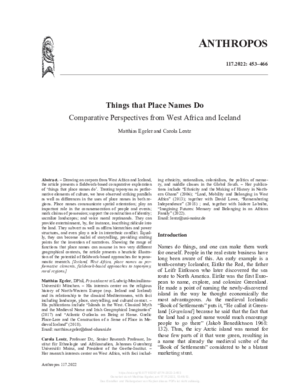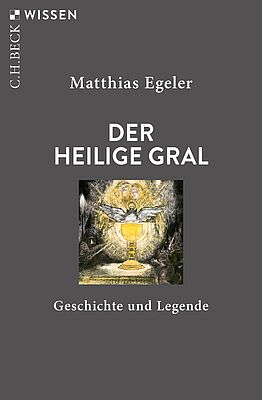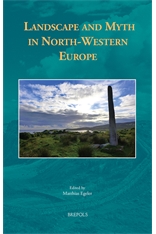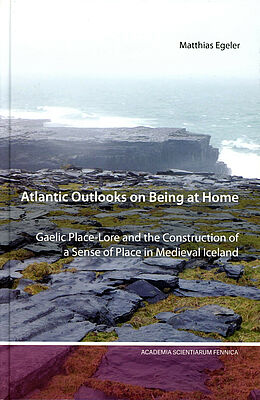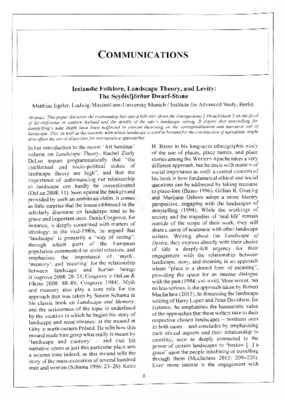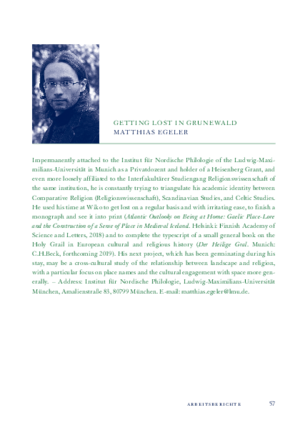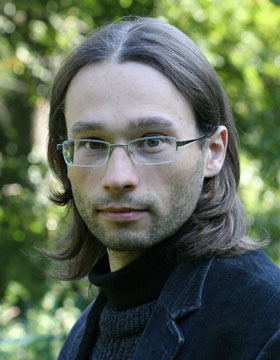
Matthias Egeler, PD Dr.
Skandinavistik und Religionswissenschaft
Ludwig-Maximilians-Universität München
Geboren 1980 in Rosenheim, Deutschland
Studium der Religionswissenschaft, Keltologie und Skandinavistik an der Ludwig-Maximilians-Universität München und der Universität Oxford
Project
Island: Porträt einer Sakrallandschaft
Das Projekt befasst sich mit der Sakralisierung und Mythologisierung der isländischen Landschaft in der isländischen Literatur des Mittelalters, ca. 900-1450. Ein besonderes Augenmerk liegt dabei auf der Frage, wie Vorstellungen unterschiedlicher religiöser Systeme und mit unterschiedlicher ethnischer Verwurzelung im Medium Landschaft zueinander in Beziehung gesetzt werden und gemeinsam einen Beitrag zur Humanisierung des Raums und zur Identitätsbildung im mittelalterlichen Island leisten.In den erhaltenen Texten der altisländischen Literatur spielt die Sakralisierung der lokalen Landschaft eine prominente Rolle; insbesondere im sog. Buch der Landnahmen, einer mittelalterlichen Geschichte der ersten Besiedlung der Insel während der Wikingerzeit, liegt ein zentraler Fokus auf einer Einschreibung religiöser und mythologischer Bedeutung in isländische Landschaften und Orte. Die "religiöse Bedeutung", die uns hier entgegentritt, ist dabei bald heidnisch und bald christlich geprägt und wird unter Rückgriff auf nicht nur skandinavische, sondern auch gälische Motive Irlands und Schottlands zum Ausdruck gebracht. Eine Annäherung an die isländische Religionsgeschichte über die narrative Semantisierung des isländischen Raums zwingt damit in exemplarischer Weise zu einem holistischen Zugang zur isländischen Kulturgeschichte: Anstatt der traditionellen Arbeitsteilung zwischen Kirchengeschichte einerseits und der Forschung zur vorchristlichen Religionsgeschichte andererseits zu folgen, wird das frühe Island als ein multireligiöser und multiethnischer Schmelztiegel gewürdigt, in dem eine scharfe Trennung zwischen christlicher und heidnischer Geisteswelt ebenso wie zwischen germanischem und keltischem Erbe oftmals kaum möglich ist. Damit leistet das Projekt einen Beitrag nicht nur zur europäischen Religionsgeschichte (einschließlich der Kirchengeschichte), sondern trägt zugleich auch zu einer Korrektur weitverbreiteter Fehlvorstellungen von Island als einem archaischen Bewahrer einer vermeintlich ursprünglichen germanischen Kultur bei, wie sie insbesondere in der Zeit des Dritten Reichs propagiert wurden, aber in der Populärkultur bis heute weithin fortleben.
Lektüreempfehlung
Egeler, Matthias. Avalon, 66° Nord: Zu Frühgeschichte und Rezeption eines Mythos. Berlin, Boston: de Gruyter, 2015 (= Ergänzungsbände zum Reallexikon der Germanischen Altertumskunde 95).
-. "Reading Sacred Places: Geocriticism, the Icelandic Book of Settlements, and the History of Religions." Philology 1 (2015): 67?90.
-. Celtic Influences in Germanic Religion: A Survey. München: Utz, 2013 (= Münchner Nordistische Studien 15).
Colloquium, 26.09.2017
Icelandic Storytelling and the Elusiveness of a Sacred Landscape
Classic and current writing in the field of landscape theory tends to view ‘landscape’ as a canvas inscribed with ‘meaning’ through a reworking of (‘cultural’) ‘memories’; thus filled with meaning, landscape then can act as a medium that naturalizes cultural views of the world and in this way is able to provide orientation. This applies to ‘secular’ landscapes of memory and remembrance, where (for instance) monuments can memorialize crucial political events and thus naturalize particular views of history, both positive and negative, which then can function as paradigms that shape people’s behavior: a triumphal arch gives visual presence to a nation’s collective feeling of superiority over its defeated enemies, and plaques remembering war crimes may give voice to a feeling of ‘never again’ for both victim and perpetrator. Similarly, religious landscapes make religious views of history and the order of the world seem natural and ‘obvious’: placing a cross on the summit of a mountain asserts the dominance of Christianity just as much as a monumental cathedral towering over all surrounding buildings proclaims the ‘naturalness’ of the power of the Church.
Medieval Icelandic storytelling, however, offers considerable resistance to such a classic reading of the cultural landscape as encapsulating cultural paradigms. Using a classic approach, one would expect that Icelandic storytelling about places and landscapes reflects constructions of landscapes that, through narratives, inscribe cultural memories into the places of Icelandic everyday life, which in turn would provide paradigms for how this life should be lived. Yet what one in many cases seems to meet is a much more playful engagement with the landscape. Discussing the place-name story about the farm Flugumýrr, as it is told in the "Book of Settlements" (13th/14th century), as well as analogous nineteenth-century material, the paper pursues how even in tales of the supernatural and in narratives about religious and mythological elements of the landscape, actual sacrality seems to elude us. Thus it explores the limits of approaching the narrative construction of the Icelandic landscape through a paradigm focused on ‘meaning’, ‘memory’ and the provision of orientation.
Publications from the Fellow Library
Egeler, Matthias (Baden-Baden, 2022)
Things that place names do : comparative perspectives from West Africa and Iceland
Egeler, Matthias (2019)
Ortsnamen als religionswissenschaftliche Quelle
Egeler, Matthias (München, 2019)
Der Heilige Gral : Geschichte und Legende C.H. Beck Wissen ; 2896
Egeler, Matthias (Turnhout, 2019)
Landscape and myth in North-Western Europe Borders, boundaries, landscapes ; volume 2
Egeler, Matthias (Berlin, 2018)
The narrative uses of toponyms in Harđar saga
Egeler, Matthias (2018)
Egeler, Matthias (Helsinki, 2018)
Atlantic outlooks on being at home : Gaelic place-lore and the construction of a sense of place in medieval Iceland FF communications ; no. 314 = vol. 314
Egeler, Matthias (2017)
Islandic folklore, landscape theory, and levity : the Seyðisfjörður Dwarf-Stone
Egeler, Matthias (Turnhout, 2017)
Islands in the west : classical myth and the medieval Norse and Irish geographical imagination Medieval voyaging ; volume 4
